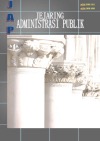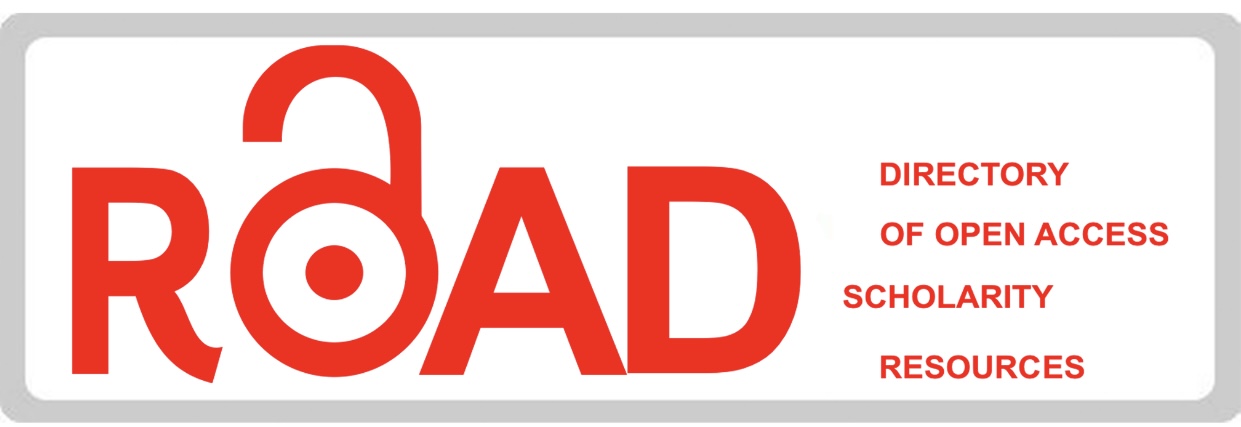Politik Birokrasi dalam Keamanan Pelabuhan di Indonesia: Sebuah Sebab Ketidakamanan
Downloads
Abstract
The economy of maritime states such as Indonesia rely on the sea, not only to extract natural resources but also as an essential medium for domestic and international trade. Focusing on the aspect of trade, it is important for maritime states such as Indonesia to have sea ports that function optimally. One of the determinants of the functionality of sea ports is port security. Despite being a maritime state, the security of sea ports in Indonesia is questionable. The presence of the so called "port mafia” and numerous accounts of crime in Indonesian sea ports as well as maritime traffic accidents indicate that Indonesia is not doing well enough to safeguard the security of her ports. This article scrutinizes the security of major international ports in Indonesia. Analysis is conducted using the bureaucratic politics theory framework. Based on the assumptions of the bureaucratic politics theory, this paper finds that the multiple actors involved in securing Indonesia's major international ports have failed to function in a coordinated matter due to poor implementation of port security policy. The poor implementation of port security itself is caused by the competing interests of said actors.
Keywords: Bureaucratic competition, bureaucratic politics, Indonesia, Port security, Sea ports
Alden, C. & Aran, A. (2016) Foreign Policy Analysis. London: Routledge.
Arif, M., & Kurniawan, Y. (2017) "Strategic culture and Indonesian maritime security”. Asia & The Pacific Policy Studies 5(1): 77-89.
Aspinall, E. & Klinken, G. V. (2011) The State and Illegality in Indonesia. Leiden: KITLV Press.
Azis, N. A., Setyawanto, L. T., & Hardiwinoto, S. (2016) "Kewenangan Badan Keamanan Laut (BAKAMLA) dalam pelaksanaan pengamanan di wilayah perairan Indonesia”. Diponegoro Law Journal 5(4): 1-13.
Brock, J. (2022) Exclusive: Indonesian navy officers ask for $375000 to release tanker. [Accessed 23 December 2022]. https://www.reuters.com/world/asia-pacific/exclusive-indonesian-navy-officers-ask-375000-release-tanker-sources-2022-06-09/
Buchanan, D. A., & Badham, R. (2020) Power, Politics, and Organizational Change. London: SAGE Publishing.
Cairney, P. (2019) Understanding Public Policy. London: Bloomsbury.
Casagrande, M. (2017) Seaports in International Law. London: Springer Publishing.
Chapsos, I., & Malcolm, J. A. (2017) "Maritime security in Indonesia: Towards a comprehensive agenda?”. Maritime Policy 76: 178-184.
Direktorat Jenderal Bea dan Cukai. (2021) Jaga Kedaulatan NKRI, Bea Cukai Gencarkan Pengawasan Laut dan Darat. [Accessed 1 January 2023]. https://www.beacukai.go.id/berita/jaga-kedaulatan-nkri-bea-cukai-gencarkan-pengawasan-laut-dan-darat.html
Direktorat Jenderal Perhubungan Laut. (2021) KPLP Perkuat Sinergi Dengan Polair Dan TNI AL Dalam Bidang Penegakan Hukum Di Laut. [Accessed 1 January 2023]. https://hubla.dephub.go.id/home/post/read/9812/kplp-perkuat-sinergi-dengan-polair-dan-tni-al-dalam-bidang-penegakan-hukum-di-laut
Ginting, S. S. M., et al. (2016) "Menuju good governance dalam pelaksanaan rekomendasi Ombudsman Republik Indonesia: Studi kasus dwelling time di empat pelabuhan Indonesia”. USU LAW Journal 4(3): 99-110.
Hammond, T. H. & Knott, J. H. (1999) "Political institutions, public management and policy choice”. Journal of Public Administration Research and Theory 9(1): 33-86.
Hill, M. & Varone, F. (2021). The Public Policy Process. London: Routledge.
Honna, J. (2010) "Orchestrating transnational crime: Security sector politics as a trojan horse for anti-reformists”. in Aspinall, E. & Klinken, G. V. (eds) The State and Illegality in Indonesia. Leiden: KITLV Press.
Indonesian Navy (2022) TNI AL Lanal Lhokseumawe Temukan 22 Bungkus Narkoba Jenis Sabu-Sabu di Pantai Seunuddon Aceh Utara. [Accessed 4 January 2023]. https://koarmada1.tnial.mil.id/pengumuman/detail/8314-tni-al-lanal-lhokseumawe-temukan-22-bungkus-narkoba-jenis-sabu-sabu-di-pantai-seunuddon-aceh-utara
Junida, A. I. (2017) Luhut Terkejut Menyaksikan Labuh Jangkar Ilegal di Pulau Tolop [Accessed 4 January 2023]. https://babel.antaranews.com/berita/54109/luhut-terkejut-menyaksikan-labuh-jangkar-ilegal-di-pulau-tolop
King, D. Y. (1995) "Bureaucracy and implementation of complex tasks in rapidly developing states: evidence from Indonesia”. Studies in Comparative International Development 30(4): 78-92.
Liss, C. (2013). "New actors and the state: Addressing maritime security threats in Southeast Asia”. Contemporary Southeast Asia 35(2): 141-162.
Maritime Anti Corruption Network (2021) Maritime Anti Corruption Network 2021 Annual Report. MACN.
Mintz, A. & DeRouen, K. (2010) Understanding Foreign Policy Decision Making. Cambridge: Cambridge University Press.
Morris, L. J. & Paoli, P. (2018) A Preliminary Assessment of Indonesia's Maritime Security Threats and Capabilities. New York: RAND Corporation.
Novian, R. (2017) "Praktik perlindungan saksi pelapor pungutan liar oleh LPSK”. In Hidajati, N. (ed) Potret Perlindungan Saksi dan Korban. Jakarta: Lembaga Perlindungan Saksi dan Korban.
OECD (2021). OECD Competition Assessment Reviews: Indonesia Logistics Sector. OECD.
Özçayır, O. (2018) Port State Control. London: Taylor & Francis.
Prasetya, A. B. & Syauqillah, M. (2019) "The dynamics of narcoterrorism in Indonesia. Case Study: Fadli Sadama”. In Rofii, M. S., et al. (eds) Proceedings of 3rd International Conference on Strategic and Global Studies. Ghent: European Alliance for Innovation.
Putra, I. K. O. D. & Runturambi, A. J. S. (2022) "Pelaku penyelundupan yang terorganisir menjadi faktor penentu dalam praktik keluar / masuknya pekerja migran di Indonesia secara ilegal”. Syntax Literate: Jurnal Ilmiah Indonesia 7(3): 1282-1290.
Pyman, M. & de la Blache, E. V. (2021) Curbing Corruption in Shipping. Curbing Corruption.
Safuan, & Budiandru. (2019) "Modus kecurangan & program anti kecurangan di pelabuhan (studi kasus pelabuhan di Jakarta)”. Owner: Riset & Jurnal Akuntansi 3(2): 54-65.
Santoso, B. (2021) The implementation of International Ship and Port Facility Security (ISPS) Code in Indonesia. Malmo: World Maritime University.
Sciascia, A. (2013) "Monitoring the border: Indonesian port security and the role of private actors”. Contemporary Southeast Asia 35(2): 163-187.
Sequeira, S. & Djankov, S. (2010) "An Empirical Study of Corruption in Ports”, MPRA Paper, No. 21791, 1 April.
Silitonga, B., Karim, E., & Puspitasari. (2019) "Keterlibatan organized crime pada perilaku suap di kalangan penegak hukum dalam peredaran gelap narkotika (studi pada kasus suap peredaran gelap narkotika di Indonesia)”. Jurnal Kajian Stratejik Ketahanan Nasional 2(1): 1-17.
Subagyo, A. & Wirasuta, D. S. (2013). "Penyelundupan manusia dan ancaman keamanan maritim Indonesia”. Jurnal Pertahanan 3(3): 151-170.
Sunardi, et al. (2020) "Sinergitas instansi maritim dalam rangka penanggulangan narkoba di Teluk Jakarta”. Jurnal Strategi Pertahanan Laut 6(1): 61-76.
Suparto, & Admiral. (2022). "The overplay functions and authority of the sea security board (BAKAMLA) and the Sea and Coast Guard in keeping marine security in Indonesia”. Jurnal Ius Kajian Hukum dan Keadilan 10(2): 162-174.
Supriyanto, R. A. (2016). "Naval counter-piracy in Indonesia” In Liss, C. & Biggs, T. (eds) Piracy in Southeast Asia. London: Routledge.
Tobing, C. I., et al. (2020) "Defending Indonesian boundary from transboundary waste: Implementing Basel Convention on National Level” In Rofii, M. S. et al. (eds) Proceedings of 3rd International Conference on Strategic and Global Studies. Ghent: European Alliance for Innovation.
Tokyo MoU. (2022). Annual Report on Port State Control in the Asia-Pacific Region 2021. Tokyo MoU
Turner, M., et al. (2022). "The challenge of reforming big bureaucracy in Indonesia”. Policy Studies 43(2): 333-351.
UNCTAD. (2022). Review of Maritime Transport 2021. UNCTAD.
Znoj, H. (2017) "Deep corruption in Indonesia: Discourses, Practices, Histories” in Nuijten, M. & Anders, G. (eds). Corruption and the Secret of Law: A Legal Anthropological Perspective. London: Routledge.
Copyright (c) 2022 Jejaring Administrasi Publik

This work is licensed under a Creative Commons Attribution-ShareAlike 4.0 International License.
All articles submitted by the author and published in the Jejaring Administrasi Publik are fully copyrighted to their authors under the Creative Commons Attribution-ShareAlike 4.0 International License. The formal legal aspect of journal publication accessibility refers to the Creative Commons Attribution-ShareAlike (CC BY-SA).
















